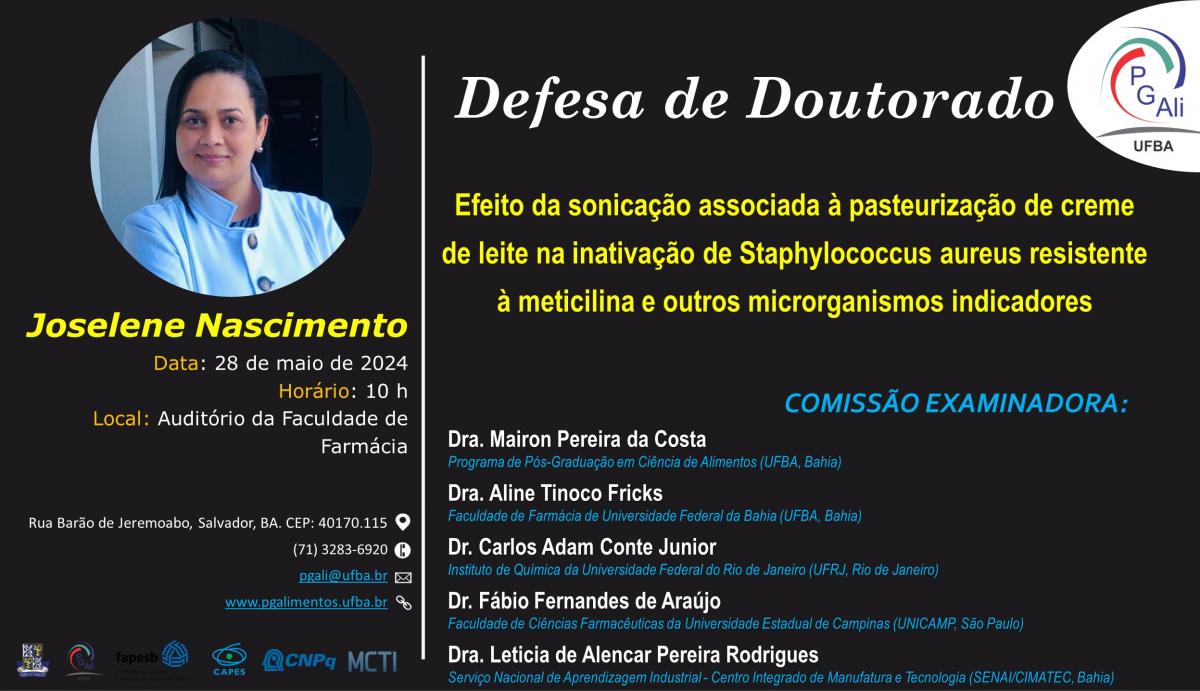
Resumo da pesquisa: Methicillin-resistant Staphylococcus aureus (MRSA) poses a significant challenge to the dairy industry, necessitating robust strategies to ensure food safety. This study focuses on the efficacy of thermosonication, a novel technology combining ultrasound and heat, in reducing MRSA in milk cream. Comparative analysis is conducted with conventional pasteurization, the industry standard. Results indicate that thermosonication effectively reduces MRSA counts by up to 4.72 log CFU/mL, akin to pasteurization’s reduction of 4.82 log CFU/mL. This finding highlights the potential of thermosonication as a rapid, energy-efficient alternative to pasteurization in the dairy industry, significantly reducing processing time while maintaining microbial safety. Further exploration and optimization of these techniques promise enhanced food safety and quality control in dairy products, addressing the growing concern of antibiotic-resistant strains like MRSA. This research lays a foundation for innovative approaches and underscores the significance of quantitative data in food safety research.
Palavras-chave: Ultrasound; Thermosonication; Bacterial reduction; Food safety.
